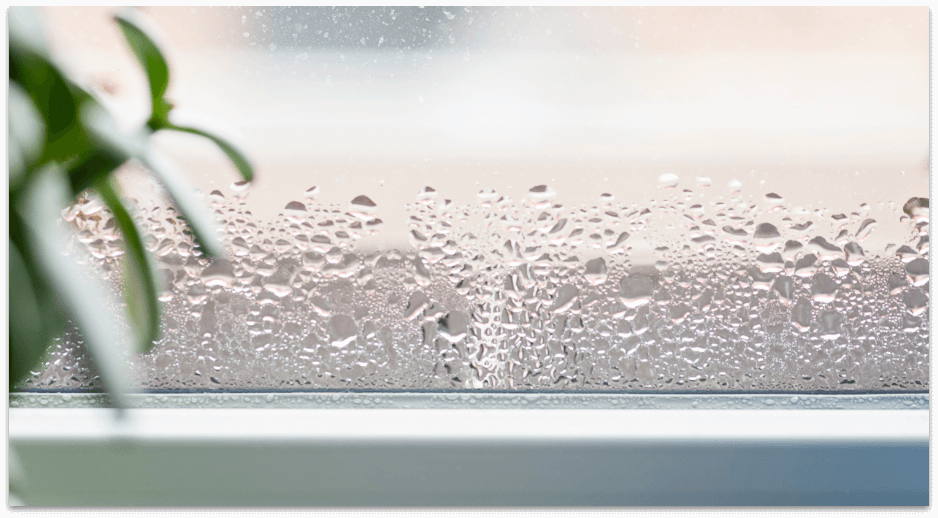Should I Install a Whole-Home Humidifier?
Now might be a GREAT time to consider a whole house humidifier (or get your existing humidifier serviced) if you’re experiencing any of the following with your indoor air quality:
- Running the furnace dries out you, your home, and everything in it.
- Asthma symptoms, colds, allergies, dry and peeling skin, scratchy throats, and even nose bleeds have flared up.
- New cracks are appearing in your walls, floors, and furniture.
- The caulking around your doors, windows, and woodwork is failing.
- Wallpaper is curling and peeling.
- There’s a chill in the air even with the thermostat cranked up.
- Static electricity zaps you at every turn.
These are typical “side effects” associated with winter weather but the cause could also be as simple as lack of humidity in your home!
How Does a Humidifier Help?
Heating the air naturally lowers its humidity. When you run your furnace or heat pump (which we do almost constantly during the cold winter months), any moisture in your home quickly dries up. You can actually see and feel this difference. Dry air makes it harder to stay warm and can wreak havoc on your skin, mucous membranes, and even your household items!
Humidifiers are the key to replenishing moisture levels as they get too low. This alone can eliminate a lot of typical “wintertime” problems and help keep your family healthy all season long.
Humidifiers Save Money
Nope, you didn’t read that wrong. Humidity in the air plays a big part in how warm we feel because it slows the rate at which heat can escape from our bodies. Homes that are kept within a desirable humidity range (generally around 30-40 percent depending on homeowner preference), cause us to retain body heat, and feel warmer at lower temperatures. Your humidifier can help lower your monthly heating bills by making your home more comfortable with less energy.
Are Whole House Humidifiers Better Than Portable Ones?
We think so! Portable humidifiers can be nice for nurseries, relief of a nighttime cough, or if you are renting. However, they’re usually limited to a single room, and even the larger ones that require less refilling can’t circulate humidity evenly throughout your entire living area. They’re also unsightly, take up space, cause moisture damage to surfaces, and require frequent cleaning.
A better option (and one that requires much less maintenance) is a whole-house humidifier installed in your HVAC system.
This type of humidifier uses your home’s ductwork to distribute humidity evenly to all parts of your home and keep it comfortable all winter long. You aren’t limited to enjoying better air quality in just one room! There are many types of whole-house humidifiers and we can help you select the best fit for the size and construction of your home.
Humidistats (And Thermostats with Humidity Controls)
A humidistat monitors the humidity levels in your home and is similar in this regard to a hygrometer (a stand-alone humidity gauge). But a humidistat has the additional feature of being connected to your whole house humidifier. Without a humidistat, your humidifier just runs constantly at the same level. Your humidistat helps you maintain optimal moisture levels in your home and can be adjusted for different seasons of the year.
Humidistats are typically pretty durable and require little to no maintenance. The newer ones are digital and are sometimes connected to your thermostat so all of your controls are in one location. You can also program the humidity level on your thermostat to adjust to varying temperature settings throughout the day. When it’s time to service your humidifier, the humidistat will let you know.
We supply and install new humidistats and thermostats with humidistat options. If you already have a humidistat but don’t like where it’s located, we can run new wiring and move it.
What Are the Most Common Humidifier Styles?
There are three main types of whole-house humidifiers:
- Drum Style
- Flow-Through
- Steam
Each of these is connected to a nearby cold water supply line (one of the pipes already running through your home), so they don’t need to be refilled.
Drum Style Humidifiers
Drum-style humidifiers are the cheapest, easiest to install, and most water efficient (they don’t require a floor drain and they put 100 percent of the moisture used into the air). However, the drum-style reservoir allows for the buildup of organic growth, minerals, and bacteria which can make it a poor choice for severe allergy sufferers. This also means cleaning the unit as frequently as once a month. Drum-style humidifiers have an evaporator pad/sponge on a drum that rotates using a small motor, dipping itself into the water reservoir and wetting the pad/sponge when your humidistat senses that you need more humidity. The heated air from your HVAC system passes over this and brings moisture into your home. This pad/sponge needs to be replaced at least once per year, sometimes more frequently.
Flow-Through Humidifiers
Flow-through systems can be more expensive and complicated to install as they require a nearby floor drain. They are also less water efficient than drum-style humidifiers (because for approximately every one gallon of output, there are two gallons of wastewater). Bypass or flow-through humidifiers have a vertical evaporator pad that is wetted with water using a connected water valve that opens when the humidistat tells it to. The air from your HVAC system passes over this pad and brings moisture into your home. There is no standing water and the pad is continuously flushed through with fresh water, so these units typically only need cleaning about once a year, which is about the same timeframe for replacing the pad. Some newer flow-through humidifiers have a “pulsed” water supply that uses less water.
Steam Humidifiers
Steam humidifiers can be mounted either directly onto your HVAC system or nearby with a tube, running the steam up to where it is dispersed. Installation requires a nearby electrical outlet and a floor drain or condensate pump (usually found beside your furnace). Steam humidifiers use the least amount of water of any humidifier and there are no pads that need replacing. They simply boil water to create steam and this steam is then carried by air from your HVAC system into your home. Steam humidifiers are the fastest type of humidifier on the market but are also the most expensive to buy and install. There is virtually no bacteria growth and the unit requires only once a year cleaning with regular soap and water. Steam humidifiers typically come with mineral water filters that need to be changed once a year.
Whole house humidifiers can also be “powered.” A powered humidifier (regardless of how it puts moisture into the air) has its own fan and does not rely on your HVAC system to move the air for it.
Which Humidifier Brands Do We Install?
We definitely have our favorites, but we install and service ALL whole house humidifiers including Aprilaire, Armstrong, Braeburn, Bryant, Desert Spring, Honeywell, Johnson Controls, Lennox, Lobb, Trane, and Trion to name a few. We make humidifier recommendations based on your home’s indoor air quality needs so you don’t have to become an expert just for this project!
If you’re ready to start feeling warmer in your own Atlanta area home again AND to start saving money on your winter heating bills, give us a call at 770-667-6937 or Schedule Now. We love simple solutions that just make sense!













